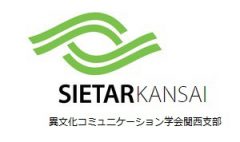Speaker: Mr. Aditya Kumar
Date/Time: Sunday June 29, 2008 14:00-16:00
Place: Takatsuki Shiritsu Sogo Shimin Koryu Center, Room 1
(1 minute from JR Takatsuki Station), Tel.0726-85-3721
http://www.city.takatsuki.osaka.jp
Fee: 500 yen for members and students; 1,000 yen for non-members
Language: Japanese (Questions and Answers in English and Japanese)
Description of Presentation
Most Indian residents in Japan used to be either Indian restaurant owners or students. But in the past ten years or so, things have changed, with many IT engineers coming to Japan. I myself started working for an Indian company which develops IT software since April, and have some Indian colleagues at my work place. Meanwhile, I am still in the PhD course at Osaka University. My Indian colleagues’ experiences, as well as my own, in Japan have given me new insight into how things are in Japan. In my presentation, I would like to address several impending topics, such as adaptation to Japanese society by an Indian family, education for children, and medical support. I will talk about how to cope with these problems. It is my great pleasure to do something to contribute to making Japan an ideal global nation with further cooperation between Japan and India.
Profile of the Presenter
Mr. Kumar was born in Buddaha-gaya, India in 1981. After graduating from the
Univ.of Nehru in India where he specialized in Japanese and Japanese culture, he
came to Japan as a fellow of the Japanese Ministry of Education and studied at Osaka
University of Foreign Languages from 2002-2003. Currently, he is doing his Doctoral
course at Osaka University. He served as an interpreter for the summit between Japan and India and has also translated and interpreted for TV, magazines and other businesses. Mr. Kumar presently works for Indian and Japanese companies as an international advisor and teaches English and Intercultural communication at a technical college.
